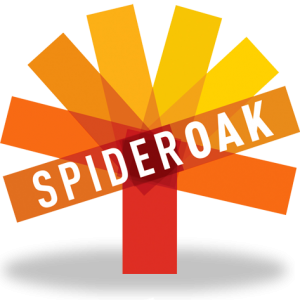 Online storage provider SpiderOak has recently started offering enterprises a way to use their cloud sync, backup, and sharing service from behind the safety of a firewall via an enterprise-targeted service dubbed the Blue Private Cloud.
Online storage provider SpiderOak has recently started offering enterprises a way to use their cloud sync, backup, and sharing service from behind the safety of a firewall via an enterprise-targeted service dubbed the Blue Private Cloud.
SpiderOak originally launched in 2007 as a clout storage provider for consumers, in the same year as their competitor Dropbox. Since then, the online storage market has become somewhat crowded, with a lot of leading platform companies joining the game, such as Apple’s iCloud, Google Drive, and Microsoft’s SkyDrive.
One key difference with SpiderOak is their “zero knowledge privacy”, which basically has their client software encrypting the data for storage without providing a copy of the encryption key, which means SpiderOak cannot open their client’s data even if they want to. This is a huge boon as unlike other online storage providers in the market, SpiderOak cannot give access to client data even if forced by law. Additionally, even if their servers are hacked, the data stored on them will not be compromised.
SpiderOak CEO Ethan Oberman believes that just because data is online doesn’t mean it can’t be secure and private.
The privacy SpiderOak provides may be appealing to consumers, but to large companies, it is a very important requirement, especially those who are in regulated industries. Sometimes corporate data policies also require the data to be stored in a specific place, whether inside company premises or in specific jurisdictions. According to Oberman, in some cases, they cannot have data stored on US soil due to the Patriot Act.
The Department of Defense is an early Blue Private Cloud customer, and while Oberman can’t reveal specifics of the deployment, he notes that there’s over ten thousand users presently involved and that the deployment is possibly meant to serve over one hundred thousand users in the long run.
SpiderOak Blue Private cloud is not exactly an example of cloud computing, as it’s not elastically scalable. It’s just a 10-machine RAID-6 cluster box, a box of servers provided by SpiderOak or by the customer on existing infrastructure. The storage capacity of their service cannot be expanded or reduced on-demand, unlike the SpiderOak Blue Hosted Storage introduced earlier.
Fortunately, the Blue Private Cloud features the other characteristics of a cloud based storage, such as simple internal and external file sharing, single-sign on, rapid deployment, usage reports, administrative controls, directory integration, and the option to retain deleted files.
The current pricing for SpiderOak Blue is $600/TB monthly in hosted form, while on-premises private cloud is cheaper at $5 per user monthly.